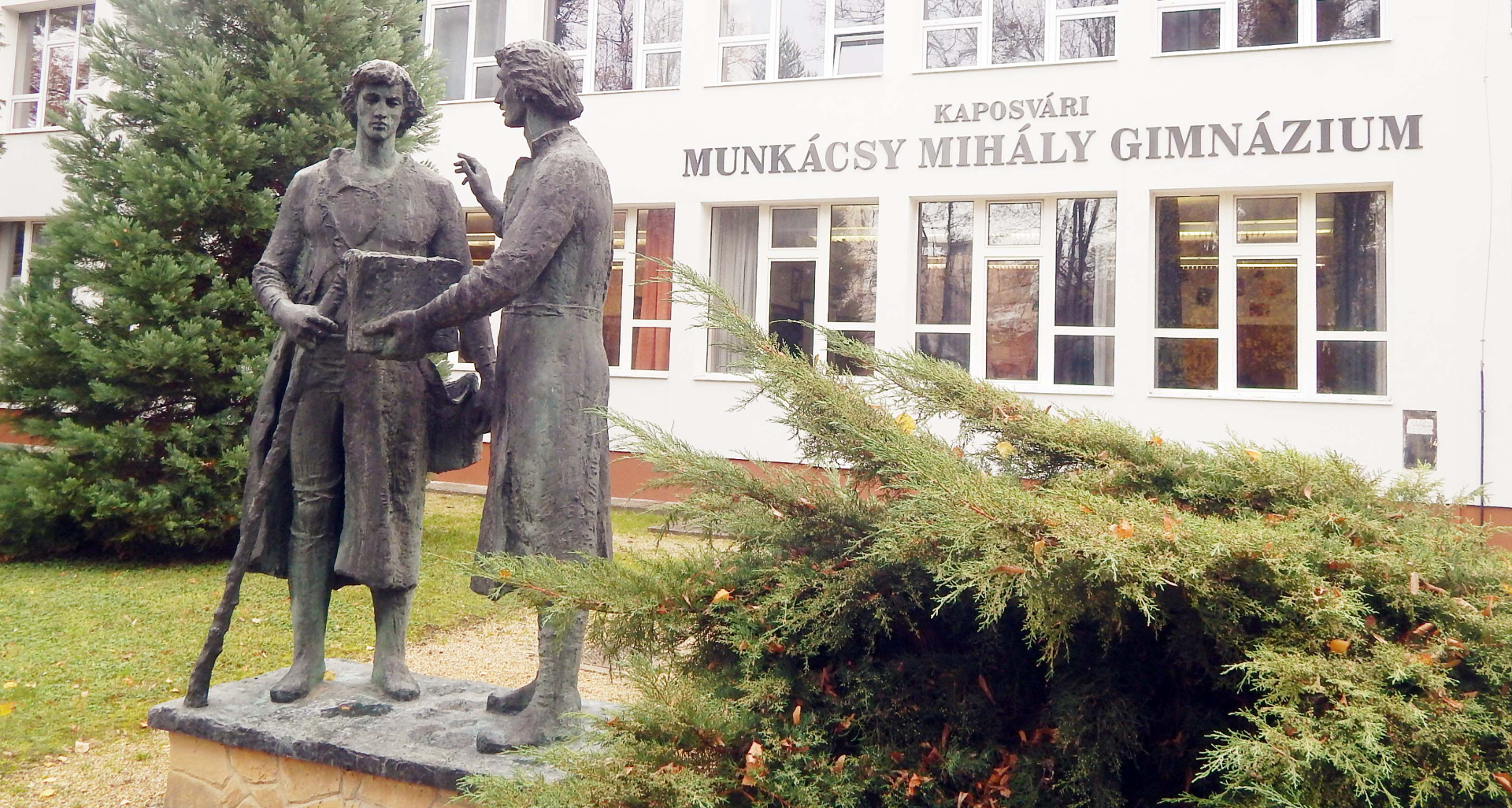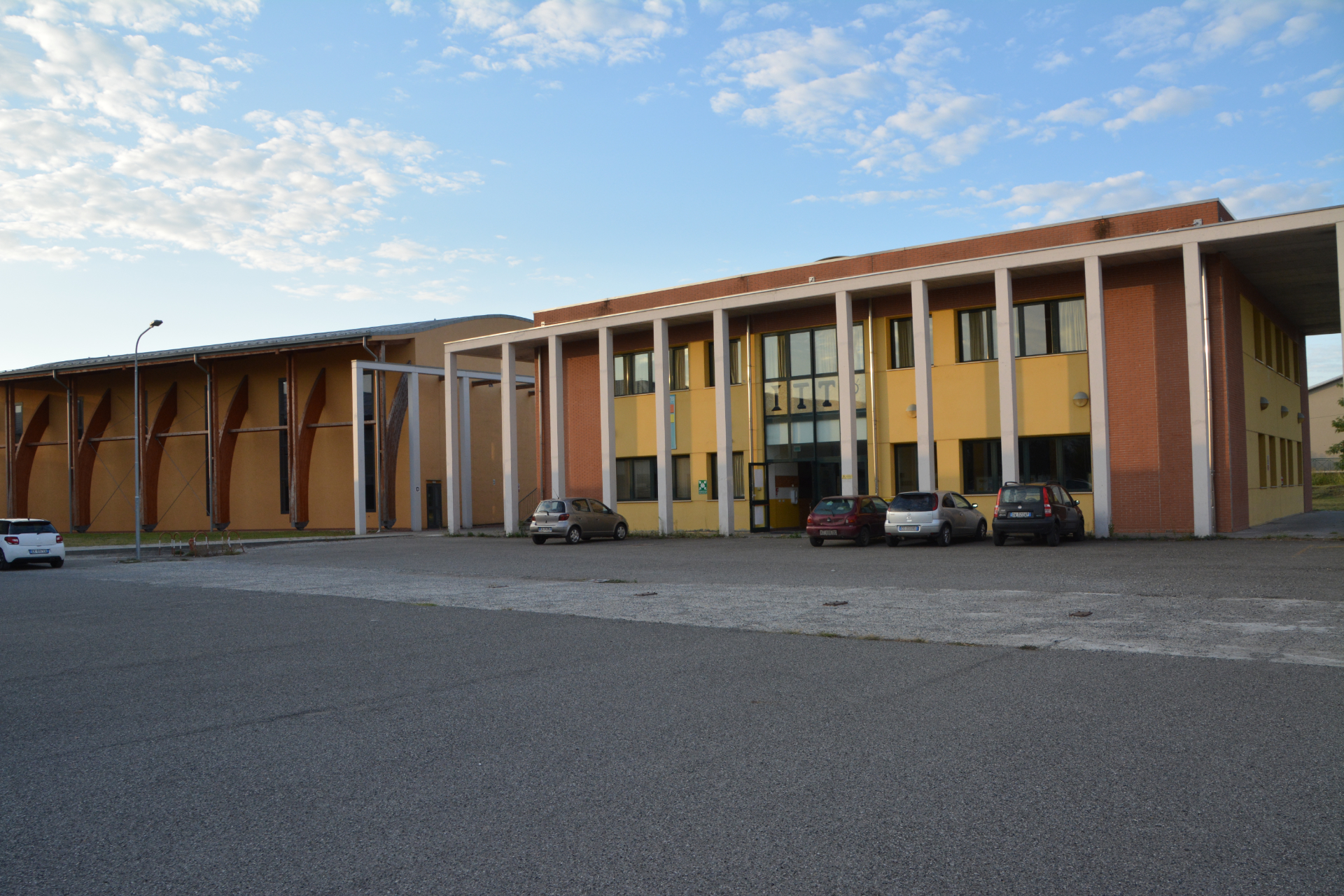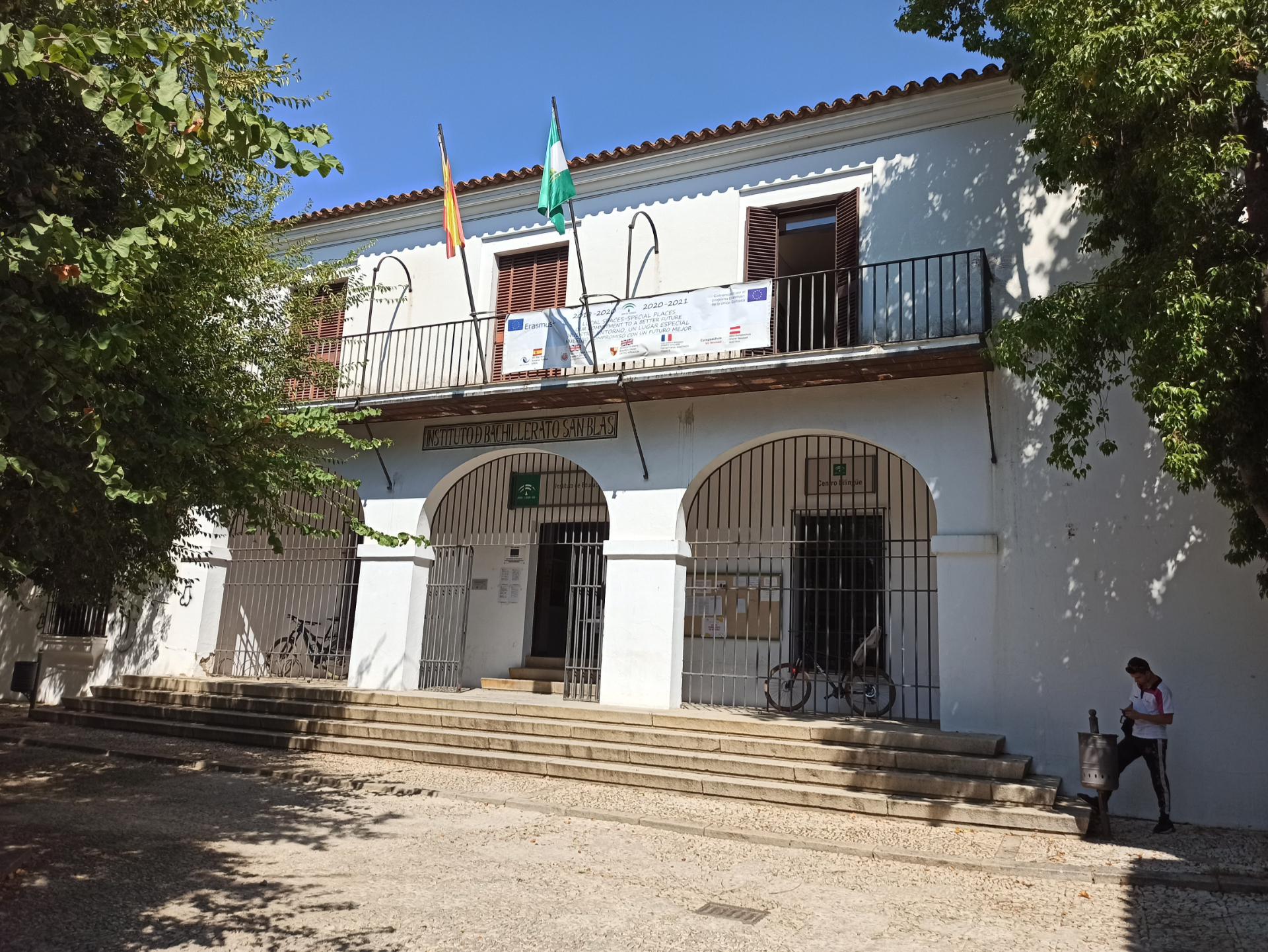Schools

Liceum Salezjanskie has existed since 2017. It belongs to Zespół Szkół Salezjańskich.It is public school open to students from Wrocław and other parts of the Lower Silesia. Zespoł Szkół has 70 teachers and 500 students in age 3-19. There are many students from Ukraine, who found their home in Wroclaw. The school strives to ensure that every student personally experiences a happy atmosphere that will help them to leave the school with a high level of confidence in their own abilities, as well as excellent examination results. These goals are delivered through a strong system, excellent learning and teaching and an extensive range of sporting, cultural, physical and social extra-curricular activities. The school offers opportunities for students involvement in activities which take place after school, at weekends and at holiday time. The salesian school has equipped laboratories for the study of nature, theater halls. Salesian School aims to use new technologies in education, the development of ICT skills among students and teachers.
Therefore classrooms are equipped with boards InterWrite. Teachers have received training in the use of this tool in their work. Students during film and radio clubs create films, broadcasts using various computer programs and are taught to perform professionally photograph and manipulate them.Videos are posted on youtube channel TVSLO WROC. Zespol Szkol Salezjańskich has very rich activities for students: students participate in ecological project led by Polish Ecological Club.The school is organizer regional competition: ZLOTE PIORO. The school cooperates with SP6ZWR Rescue Spaces Club. They jointly organized the flight of the stratospheric balloon.
The school is going to take part in the project, because after the third year of work, it is an opportunity for the development of ourschool, increasing young teachers’ motivation to work, raising their qualifications.
High School Agiou Charalambous is located in the East of the town of Paphos, in Emba village. A small village 5km away from Paphos town. We also have a harbor and the Paphos airport is 12km away .
Over 350 students of the ages 15-18 years old are studying in our school. The school has 60 teachers in total, along with another 15 general staff.
Our school offers four different categories for academic studies, that students choose to follow according to their needs for entering universities. The four paths that they can choose to follow in their first studying year are those below:
• The first one has Ancient Greek, Latin, History and Philosophy.
• The second one has Mathematics, Physics, Science, Biology and Chemistry.
• The third one has Mathematics, Economics and Statistics.
• The forth one has English, Economics and Mathematics.
In the second and third year there are another two paths that students choose along with their previous decision, which are:
• The artistic path that includes: Art, Design, Theatre/Drama, Architecture.
• The foreign language path that includes: Russian, Spanish, French and English.
The school is going to take part in the project, because it is an opportunity for the development of our school, increasing young teachers’ motivation to work, raising their qualifications.
FRANCE
LYCEE GENERAL ET TECHNOLOGIQUE PLAINE DE L AIN
AVENUE LEON BLUM
AMBERIEU EN BUGEY 01500
FRANCE
The lycée général et technologique de la Plaine de l’Ain is a very big secondary school in Ambérieu-en-Bugey.The school is the unique secondary school in the area, so the number of students is important (1.800 students) and there is a great diversity in the educational streams such as sciences an technology, literature, humanities, foreign langages, biotechnology, sustainable development, economics. The students belong to all socio-economical backgrounds : a third ofthem belong to the upper SEC, a large group has parents with intermediate occupations or self-employed, and approximately 15% has unemployed parents or parents with lower and/or partial occupations. The school project is based on many purposes : taking care of all the students and their goals, especially for those with difficulties; give meaning to the training courses followed by each, according to their individual project; initiate a cultural journey throughout the school path (that purpose fits well with the involvement in European projects); support the students. As the French Educational Policy asks for, our school is having an inclusive policy : 150 students have special needs, cognitive needs or physical needs, or both.
Our school is having partnerships with a German school, an English school, and an Italian school.
The school project is based on many purposes : taking care of all the students and their goals, especially for those with difficulties; give meaning to the training courses followed by each, according to their individual project; initiate a cultural journey throughout the school path.
The school needs to be more opened to the economic and cultural background, and the students need to increase their abilities in communication and sharing educational material. The coordinator for our school (Ms Schioser) has multiple experiences inleading European projects such as Leonardo, Comenius, ERASMUS+. Approximatly 25 wil be involved in the project, teaching History and Geography, CLIL, sciences, active citizenship. We are seeking for the possibility to open our school to European cultures, so we need to create individual contacts for our students but also group contacts between classes to share common educational activities. Our school, and its staff can contribute to the project because we are located in a semi-rural area, where the activities linked to wood are ancestral and still in progress; we have partnerships with organizations (ONF, Poissons de la Dombes, parc de la Dombes etc.) acting to preserve the natural resources such as the forests, the water, the fauna & flora. More than 1800 km² of forests, mostly oaks and softwood trees (firs, spruces). These mountain forests are the subject of an in-depth study of the forest resource, through the installation of a network of more than 700 permanent plots to monitor forest stands, forest renewal, forest management and biodiversity indices.
HUNGARY
Munkácsy Mihály Gimnázium
Kaposvári Tankerületi Központ
Kossuth L. u. 48.
Kaposvár 7400
Kaposvári Munkácsy Mihály Gimnázium celebrated the 100th anniversary of its foundation in the 2017/2018 academic year. It is considered to be a prestigious school in the county carrying out high quality educational work. At present 832 students attend the school in 26 classes. We base the offer of our trainings on the needs of the labour market, economy and our partners. Thus, in addition to overall talent training we announce training specialized in English, a Hungarian-English bilingual class, a six-gradeclass, a class specialized in science year by year.
The main elements of our Program of Education are expressed in the spirit of complex talent management, which oblige us to develop our students’ skills, the application of their creativity and make them take part in relevant programs according to their talent during and outside the teaching lessons. In this spirit high-quality professional work is going on in the institution in the form of study groups, sport clubs, individual preparation for competition and self-study groups. All these are proved by a number of national and even international competition- and championship results. Our school has been a regional and national centre of geographical talent management for over 30 years. For the students in our biology-chemistry special classes we regularly organise field trips to the neighbouring forestry areas to study the local flora and fauna. Some of the class trips focus on visiting national parks and conservation areas protecting forests.
Year by year we organise field trips abroad for the best contestants of the Lóczy Lajos National Geography Competition where they can get to know the forests and trees of some more remote areas.The international experiences improve the learning motivation of the students and they can help them with the choice of careers, our teachers can receive opportunity for making contacts, and our school can also be seen on the map of the European learning network.The planned project is a continuance of a previous collaboration with the coordinator school in Poland, which program fits in the approving of our science education and our teachers can gain following experiences.The European cooperation projects improve the reputation of our school among our partners, serving the enrolment in our school.The English language based project is suitable for our bilingual course, in which we teach biology in English as well. In our institute there are science specification in four years of education, where six biology teachers instruct the students, two of them teach biology in English as well. We rely on their work in the planning and the accomplishment of the project. In our school we always carry out the Erasmus projects in teamwork, which is controlled by school leadership. In the case when one of the colleagues cannot complete the previous assumed duties, the leadership arrange the replacement and a new person is marked out for the task.
Istituto Statale d’Istruzione Superiore Mattei is an upper-secondary state school based in Fiorenzuola d’Arda.We provide our 1,000 students with a genuinely comprehensive, supportive, and high-quality education; our 126 teachers and 30 non-teaching staff work closely with parents and local institutions to ensure that each individual becomes a confident, effective learner and to promote inclusion and success for everybody, whatever their ability and socio-economic background. Therefore, our didactic approach focuses on personalized learning, to address the distinct needs, interests and cultural backgrounds of our pupils; our students’ active participation is fostered through an extensive implementation of teaching methodologies like flipped classroom, task-based and project-based learning. Our students are aged 14-19. Thanks to the strong links with the community, all students aged 16-19 have a number of hours of work placement, which is hosted by both local public institutions and private companies: this is an important opportunity for students to discover their interests, attitudes, talents and make the most suitable career choice. We provide qualified support to pupils with special needs such as non-native Italian speakers and students with mental or physical disabilities, learning difficulties and/or low levels of motivation. Our students’ wellbeing, success and self-fulfilment are also promoted with a wide range of extracurricular activities such as afternon clubs (maths clubs, sports sessions, theatre labs, coding and computer programming/3D/drone workshops, Cambridge ESOL Examinations courses for English Certifications Level B1 and B2, English speaking sessions), extended counselling services, career days and recreational activities outdoors.
We are well resourced in terms of media technology.We also have a new Science/Physics Lab provided with working tables for students and a wide screen IWB. In compliance with the guidelines of the national Ministry of Education we are involved in implementing CLIL. The main objective of our school is to provide all the students with the best opportunities to show their talents and attitudes, to learn and achieve the goals they have set for themselves. We are a sustainable school, which means we are open to any occasion which could open up our students’ mind to ways to become active protagonists involved in changing our environment for the good of everybody. The staff team taking part in this project is made up of teachers with a long-standing experience in Erasmus+ and who have been teaching in our school for some years already: they are both language teachers and teachers of the Department of Science. The group will be supervised by our principal. If necessary, the people in charge of running the project will be easily replaced by other colleagues with relevant experience in Erasmus+ and specialisation in the thematic areas of the project.
San Blas High School is a secondary Andalusian schools, with 1200 students and 100 teachers and it is located in a rural area in the North of the province of Huelva in Southern Spain. We teach compulsary secondary education, A-level studies, VET education (Administrative, nursery education and cooking vocational education training courses), and adult education. Despite its location. The strength of the school relies on the educational programmes and strategies boosted by highly involved staff working on a range of fields such as mediation strategies, gender equality, bilingual programme, vocational training and European projects. Within our home town is located the UNESCO biosphere site of “Las Dehesas de Sierra Morena” ,and close in Seville there is the UNESCO heritage sites of the Cathedral, Alcazar and “Archivo de Indias” are within easy reach. These culturally special areas are ones that our learners have direct impact over. To enable these special places to be used effectively we need to engage with people from local to international areas and this is an ideal project to do this. The school belongs to a network of schools that every year and for one week, organise a variety of activities to raise awareness on the importance of working together to achieve a culture of peace. We have the expertise in these fields to share with our partners in this project.
We firmly feel that from our work we do we can deliver information to inform our partners. San Blas School is in the heart of a Natural Park and a biosphere reserve. This natural Mediterranean scenery, comprised of extensive pastures populated by holm and oak forests, has for centuries been the base of the area’s economy, due to the proper agricultural use of this space. We think that our natural landscape is an important part of our students and people living in the „sierra”, therefore it is important to analize our natural heritage and study other natural areas in Europe.Carmen Lería is our Erasmus + coordinator and she is incharge of the Erasmus + project leaded by Braunton Academy. María Dolores Talavera is our headmaster deputy and she is in charge of our students involved in Erasmus + leaded by the Diputación de Huelva. Francisco González is a Geography teacher with experience in Comenius, Grundtvig and Erasmus + and he is responsible for an exchange of students with Pilton Community College in Devon (UK). San Blas school paticipates since 2007 in Eco- schools programme, trying to produce sustainably minded students and environmentally conscious people, so we’re really experienced teaching enviromental issues. San Blas school is located in the heart of a Natural Park and the UNESCO biospheresite of “Las Dehesas de Sierra Morena”, so we will try that Natural Park Authorities get involved inthe project as well as some professors from Seville University and Aracena’s Town Hall staff.







